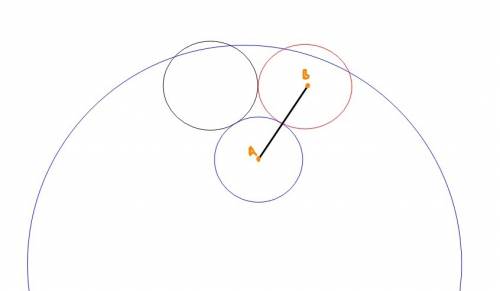
Mathematics, 19.10.2019 20:50 door9817
Suppose there are 10,000 civilizations in the milky way galaxy. if the civilizations were randomly distributed throughout the disk of the galaxy, about how far (on average) would it be to the nearest civilization? (hint: start by finding the area of the milky way's disk, assuming that it is circular and 100,000 light-years in diameter. then find the average area per civilization, and use the distance across this area to estimate the distance between civilizations.)

Answers: 1
Another question on Mathematics

Mathematics, 21.06.2019 15:00
Which of these choices show a pair of equivalent expressions?
Answers: 1

Mathematics, 21.06.2019 16:30
Asequence {an} is defined recursively, with a1 = 1, a2 = 2 and, for n > 2, an = an-1 an-2 . find the term a241. a) 0 b) 1 c) 2 d) 1 2
Answers: 1

Mathematics, 21.06.2019 18:30
You were told that the amount of time lapsed between consecutive trades on the new york stock exchange followed a normal distribution with a mean of 15 seconds. you were also told that the probability that the time lapsed between two consecutive trades to fall between 16 to 17 seconds was 13%. the probability that the time lapsed between two consecutive trades would fall below 13 seconds was 7%. what is the probability that the time lapsed between two consecutive trades will be between 14 and 15 seconds?
Answers: 3

You know the right answer?
Suppose there are 10,000 civilizations in the milky way galaxy. if the civilizations were randomly d...
Questions


Chemistry, 26.08.2020 20:01

Mathematics, 26.08.2020 20:01


Mathematics, 26.08.2020 20:01

English, 26.08.2020 20:01

History, 26.08.2020 20:01



Mathematics, 26.08.2020 20:01

Mathematics, 26.08.2020 20:01

Mathematics, 26.08.2020 20:01

History, 26.08.2020 20:01

Mathematics, 26.08.2020 20:01


Mathematics, 26.08.2020 20:01

French, 26.08.2020 20:01

Mathematics, 26.08.2020 20:01

History, 26.08.2020 20:01

 (lights year square)
(lights year square)
 lights year.
lights year.


